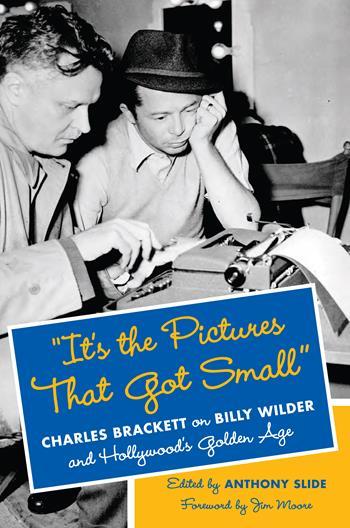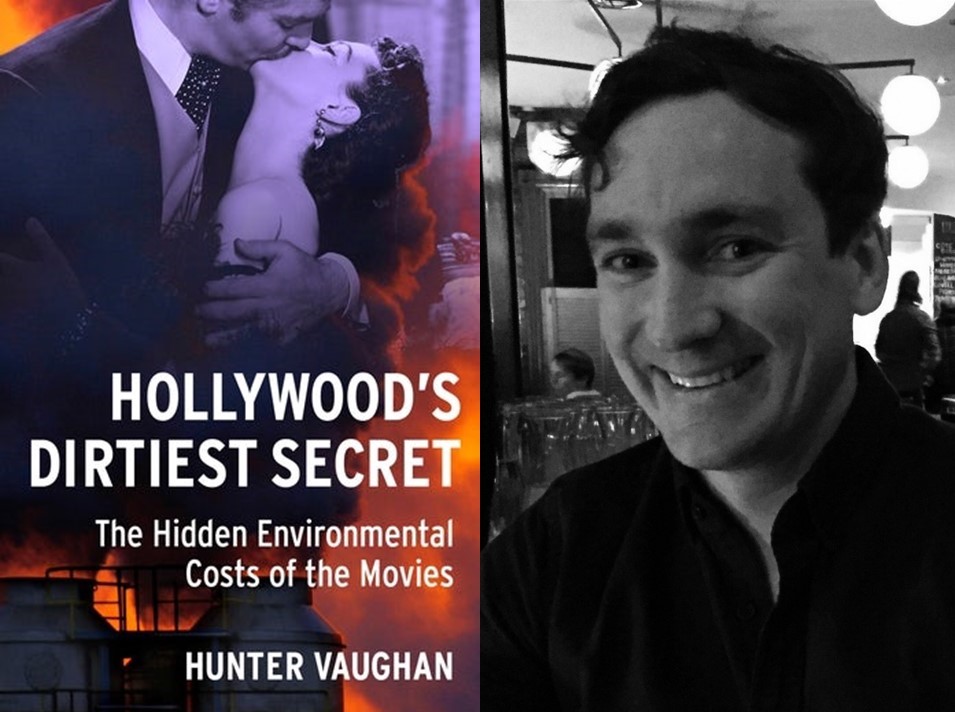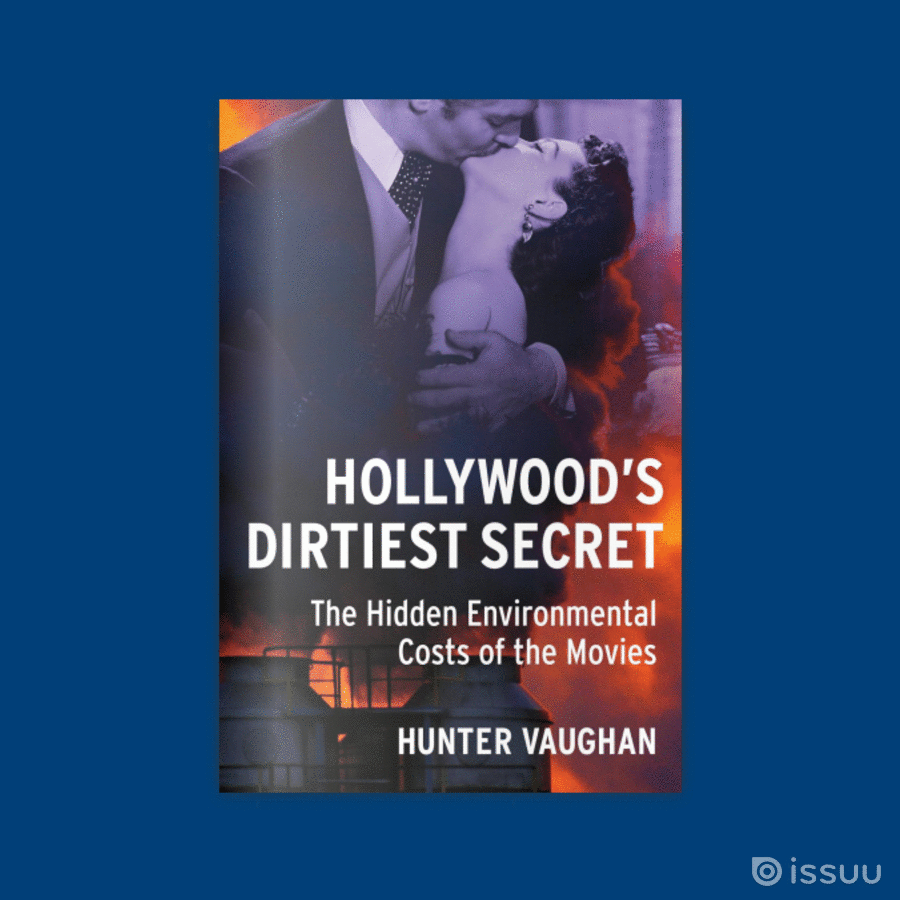An Interview with Anthony Slide, editor of "It's the Pictures That Got Small"
The following is an interview with Anthony Slide, the editor of “It’s the Pictures That Got Small”: Charles Brackett on Billy Wilder and Hollywood’s Golden Age. (You can save 30% on “It’s the Pictures That Got Small” by using the coupon code SLIITS when you order from our site.)
“The two were as different as it is possible to be. Brackett was older and wiser. Wilder was young and brash. Wilder was a liberal. Brackett was a conservative—a staunch Republican—American and Episcopalian. Wilder was European and Jewish. And yet they complemented each other so well.” —Anthony Slide
Question: Who Was Charles Brackett?
Anthony Slide: Charles Brackett’s background is both patrician and literary. He came from a wealthy New England family, and in the 1920s he wrote short stories for the Saturday Evening Post, served as drama critic for The New Yorker, and was a member of the Algonquin Round Table. In 1932, Charley (as I like to call him after working with him posthumously on his diaries for so many years) came to Hollywood, and at Paramount he had a lengthy relationship, as co-writer and producer, with legendary writer-director Billy Wilder.
Q: Why are his diaries important?
AS: Charley’s diaries, as currently published, cover the years 1932-1949. (There are additional diaries for the period 1950-1962, when he was working at 20th Century-Fox, and I hope one day that they also will be published.) The diaries are unique in film history in that they are the only daily record from the period not only of the social life of a major Hollywood figure, but also the daily working of a major Hollywood studio, Paramount. I like to say that just as Samuel Pepys recorded life in seventeenth-century London, so does Charles Brackett record life in twentieth-century Hollywood.
Q: How did you find the diaries?
AS: In 2007, Jim Moore, who is Brackett’s grandson, donated the diaries, along with many of his grandfather’s papers, to the Margaret Herrick Library of the Academy of Motion Picture Arts and Sciences. Fortuitously, Jim had heard of my reputation in the field and approached me, initially to place a financial value on the collection. I didn’t have time back then to read all the diaries, but even so it was obvious to me, just from a sampling, that they had tremendous historical importance, and that they deserved to be read by a much wider audience than the few scholars and students who might come across them at the Academy.
Luckily, Jim was more than happy to agree to my editing the diaries, and my only regret is that it has taken an incredible eight years to complete the editing process, find a suitable publisher, and get the finished product into the bookstores. I might add that when I first started, I was scrupulously annotating almost every name and subject, but then I realized that my annotations reduced the amount of space available for Charley’s actual diary entries. I decided, perhaps with a certain amount of regret, that it was better to cut back on the annotations—after all, surely any reader of a book such as this does not need to be told who is Claudette Colbert or Gary Cooper?
Q: What do the diaries reveal of his relationship with Billy Wilder?
AS: I am sure that just about everyone involved in film history is aware of the tempestuous relationship between Billy Wilder and Charles Brackett, a partnership which was responsible for such American classics as Ninotchka, Ball of Fire, The Lost Weekend, A Foreign Affair, and, of course, Sunset Boulevard.
Brackett identifies the first day when he and Wilder began working together as August 18, 1936. He doesn’t say much in the diaries of those first few weeks together, but he adds a later note that, “I was enormously impressed with this world-weary man.” The two were as different as it is possible to be. Brackett was older and wiser. Wilder was young and brash. Wilder was a liberal. Brackett was a conservative—a staunch Republican—American and Episcopalian. Wilder was European and Jewish. And yet they complemented each other so well. The diaries reveal endless arguments, with Brackett’s often wishing to break up the partnership in large part because of what he perceives as Wilder’s vanity and self-glorification. But thankfully for movie-goers, they stayed together.
Q: How would you describe Brackett’s style in the diaries?
AS: Brackett is in many ways old-fashioned, and his diaries often contain words or phrases which may be unknown to modern readers. (Some of those I did annotate.) The diaries are hand-written and almost impossible to decipher. He doesn’t tend to worry in the diaries about bringing up topics never discussed before or names unknown to readers today. After all, these are his diaries, written late each night and perhaps intended only for his own edification. At the same time, I strongly suspect that he had always intended one day the diaries be published in some form. Certainly, in the 1950s, he had the diaries transcribed by his brilliant secretary Helen Hernandez, and approached legendary editor Bennett Cerf at Random House as to their publishing potential. With total lack of modesty, I am pleased to note that my editing of the diaries closely follows that suggested by Mr. Cerf.
Q: Are there any controversial aspects to his life in the diaries?
AS: Brackett’s wife, Elizabeth, was an alcoholic and confined at times to a mental institution on the East Coast. This is hinted at in the diaries, but, of course, Brackett doesn’t really need to tell himself what is going on within his family. Jim Moore once commented to me that “a river of alcohol runs through this family.” And in my introduction to the diaries, I discuss frankly and openly and I hope honestly Brackett’s personal life. He certainly holds nothing back in writing his thoughts on the lack of talent of various actors, actresses and directors. And his pithy one-liners putting down a contemporary film he has seen that evening illustrate why he must have been a good drama critic at The New Yorker.




